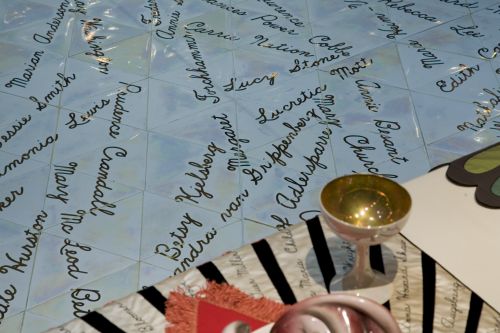Maria Stewart
b. 1803, Hartford, Connecticut; d. 1879, Washington, D.C.
Orphaned at the age of five, Maria W. Stewart worked as a domestic in the home of a white clergyman, and was married and widowed, before embarking on a career of political activism in 1830. Settled in Boston, she wrote the controversial twelve-page pamphlet, Religion and the Pure Principles of Morality (1831), exhorting blacks to rise up against slavery in the South and racial restrictions in the North; this call for open rebellion placed her in the militant abolitionist camp. She was the first known woman to lecture in public on political issues, addressing audiences at the New England Slavery Society and the African Masonic Hall, among other venues (1832–33). Her lectures were published in The Liberator. Stewart was no less radical in her feminism, demanding that women participate in every aspect of life, and that black women in particular take a more visible role in civil rights agitation. She moved to New York, where she published her collected writings, Productions of Mrs. Maria W. Stewart; the 1879 edition of this work would include a biographical sketch. During the Civil War, now in Washington, D.C., she established a school for the children of escaped slaves. Many of Stewart’s ideas became central to the civil rights and women’s movements as articulated by later activists such as Sojourner Truth and Frederick Douglass.

Related Place Setting
Related Heritage Floor Entries
- Angelina Grimké
- Marian Anderson
- Josephine Baker
- Mary McLeod Bethune
- Anne Ella Carroll
- Mary Ann Shad Cary
- Prudence Crandall
- Milla Granson
- Sarah Grimke
- Frances Harper
- Zora Neale Hurston
- Edmonia Lewis
- Mary Livermore
- Bessie Smith
- Harriet Beecher Stowe
- Harriet Tubman
- Margaret Murray Washington
- Ida B. Wells